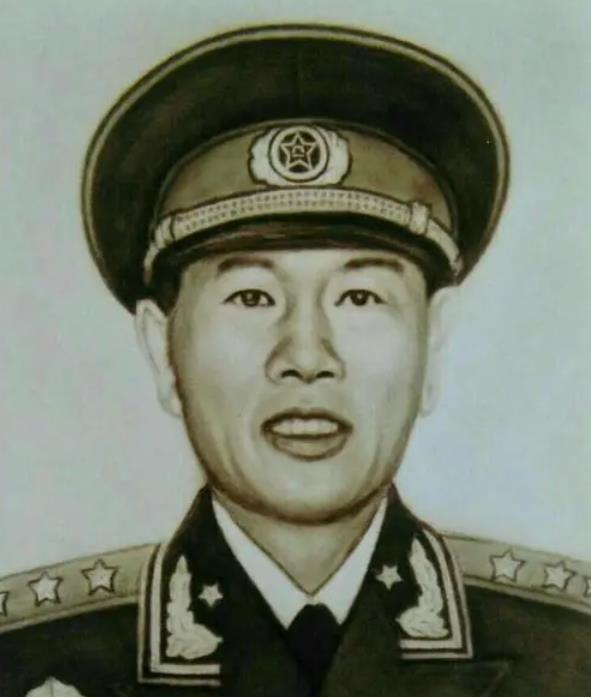Deng Hua, as the founding general of New China, killed countless enemies in his life and made outstanding contributions to the victory of the war, in 1978, when Deng Hua was seriously ill, Pu Anxiu came to visit and handed over the relics left by Mr. Peng to him. What kind of revolutionary friendship did the two have?

On April 28, 1910, Deng Hua was born in a family of scholars in Hunan Province, since childhood was full of poetry, when the country was turbulent, the social environment was very dark, the people lived in the depths of the water, the outbreak of the May Fourth Movement in 1919, so that Deng Hua suffered a huge impact on the soul, he planted a seed of saving the country and saving the people in his heart, and then Deng Hua came to Changsha to study, where he came into contact with advanced revolutionary ideas, realized that only revolution can save the country in the water and fire, After the victory of the Northern Expedition, Chiang Kai-shek suddenly launched a counter-revolutionary coup and wantonly killed revolutionaries, Deng Hua resolutely participated in the Shonan Uprising after seeing the situation, and served as an officer of the Political Department in the Workers' and Peasants' Revolutionary Army.
After the end of the Great War in the Central Plains in 1930, China achieved superficial reunification, but the Japanese army was eyeing our country with a tiger's eye, and at a critical juncture Chiang Kai-shek pursued a policy of non-resistance, turned a blind eye to the evil deeds of the Japanese, and instead wantonly encircled and suppressed the Jinggangshan revolutionary base area. In the case of the Kuomintang's strength is 3 times that of our side, Deng Hua led the troops to repel many attacks of the enemy army, after this emergence, Deng Hua did not have much opportunity to lead the troops to fight, after the Lugou Bridge Incident in 1937, the War of Resistance Against Japan broke out in an all-round way, Deng Hua resolutely threw himself into the cause of the War of Resistance, during which he established an anti-Japanese armed force of about 100,000 people, and opened up a number of anti-Japanese base areas, Deng Hua took the lead in the Hundred Regiments War, personally led a battalion of troops, and captured the enemy's stronghold, although Deng Hua failed to command a large-scale campaign, However, he sent a large number of anti-Japanese armed personnel to our party and still made great contributions.
Shortly after Japan's surrender, Chiang Kai-shek launched a civil war in order to establish a dictatorship, during the Liaoshen Campaign, Deng Hua showed outstanding military talent, he led the Northeast Field Army to take the initiative to attack, successfully annihilated the strength of the Kuomintang 3 divisions, caused a major blow to the enemy army, during the Battle of Pingjin, Deng Hua showed excellent decision-making ability, he quickly made a judgment according to the situation at that time, put forward the proposal to monitor Tanggu with a small number of troops, concentrate troops to attack Tianjin first, and the superiors quickly adopted his idea. The final result also proved that Deng Hua's judgment was very correct, our army occupied the advantage in this battle, and cut off the Kuomintang escape route, after 29 hours of fierce fighting, the Kuomintang more than 130,000 people were all annihilated by our party, Tianjin was officially liberated, in the subsequent many battles, Deng Hua's military ability was displayed to the fullest, his reputation also began to resound, whether it was the War of Resistance Against Japan or the War of Liberation, Deng Hua did not have the opportunity to contact With General Manager Peng, and the real revolutionary friendship between the two people was during the War to Resist US Aggression and Aid Korea.
In June 1950, a full-scale civil war broke out in Korea, and in order to maintain its leadership and interests in Asia, the United States quickly joined the battle, and sent the Seventh Fleet into the Taiwan Strait to bomb China's northeast region Deng Hua made an analysis according to the situation, and he believed that our army's military equipment was backward and was in a disadvantageous position compared with the enemy's aircraft cannons and new-type guns and ammunition, so he suggested that four corps of the 13th Corps and three artillerymen should be sent to cross the river into the DPRK first, and at the same time send additional troops to maintain the rear. Providing a favorable basis, on 25 October the Volunteers engaged the United Nations forces for the first time, and although our army won the battle, it also paid a great price.